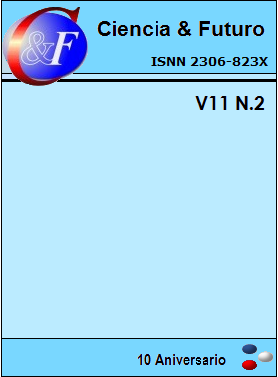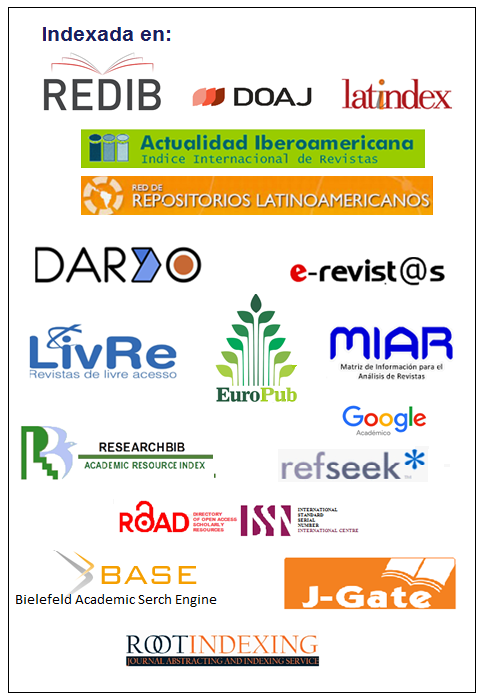Evaluación de metodologías de desarrollo de entornos virtuales
Palabras clave:
metodología de desarrollo de entornos virtuales, fases de desarrollo de software, lineamientos de evaluación de metodologías.Resumen
Se caracterizaron las propuestas metodológicas para el desarrollo de entornos virtuales de Kaur, Celentano y Pittarello, Fencott y UP4VED (Unified Process for Virtual Environment Development), teniendo en cuenta las actividades que realizan en las fases de desarrollo de software: análisis, diseño, implementación y pruebas. A partir del resultado de su análisis y el uso de buenas prácticas de la ingeniería de software, se propusieron un conjunto de lineamientos que se deben tener presente a la hora de seleccionar una metodología para el desarrollo de entornos virtuales. A través de ellos se evaluaron las propuestas planteadas, con la finalidad de conocer en qué medida podrán garantizar el desarrollo adecuado del EV. La aplicación de los lineamientos para la evaluación de metodologías de desarrollo de entornos virtuales permite determinar cuáles son las actividades fundamentales que se deben realizar en este proceso, lo que contribuye con el aumento de la calidad del producto y la satisfacción del cliente que lo vaya a utilizar.Descargas
Citas
ACOSTA, M. E. 2010. Desarrollo de un Gestor Metodológico para asistir a la construcción de Entornos Virtuales. Universidad Autónoma de Occidente. Consultado: 22/06/2020. Disponible en: http://hdl.handle.net/10614/1436
CARDONA, J. D. 2010. UP4VED Método de Desarrollo basado en el Proceso Unificado y en Buenas Prácticas para la Construcción de Entornos Virtuales. Consultado: 22/06/2020. Disponible en: https://dialnet.unirioja.es/servlet/tesis?codigo=55918
CELENTANO, A. & PITTARELLO, F. 2001. Class of Experience: A High Level Approach to Support Content Experts for the International Workshop on Authoring of 3d Environments. Structured Design of Virtual Environments and 3d- Components. Web3D Conference.
ESERYEL, D.; GUO, Y. & LAW, V. 2012. Interactivity design and assessment framework for educational games to promote motivation and complex problem-solving skills. En: Assessment in game-based learning. Springer, New York, p. 257-285.
FAEZ, I. & GARCÍA, J. 2014. Laboratorio Virtual sobre Secaderos Rotativos en la Emp. Cmte. Ernesto Che Guevara para el análisis de los Balances térmicos y de Masas. Universidad de Moa. Consultado: 22/06/2020. Disponible en: http://ninive.ismm.edu.cu/bitstream/handle/123456789/2131/faez.pdf?sequence=3&isAllowed=y
FENCOTT, C. & ISDALE, J. 2001. Design Issues for Virtual Environments. International Workshop on Structured Design of Virtual Environments and 3D-Components. Web3D Conference.
FENCOTT, C. 2005. A Methodology of Design for Virtual Environments. First Int. Workshop on Methods and Tools for developing Virtual Reality Applications (MeTo-VR). 11th Int. Conf. on Virtual Systems and Multimedia (VSMM).
KAUR, K. 1997. Designing Virtual Environments for Usability. Consultado: 22/06/2020. Disponible en: https://link.springer.com/content/pdf/10.1007/978-0-387-35175-9_112.pdf
MARCANO, Y.; ROSALBA, T. & HERNÁNDEZ, M. 2009. Construcción de entornos virtuales inteligentes: propuesta metodológica. Multiciencias 9(2): 203-212. Consultado: 22/06/2020. Disponible en: https://www.redalyc.org/pdf/904/90411687012.pdf
OLASOJI, R. & HENDERSON-BEGG, S. 2010. Summative assessment in second life: A case study. Journal of Virtual Worlds Research 3(3).
PASCUAL, J. & MASSO, M. 2015. Un enfoque estructurado para el desarrollo de interfaces de usuario 3d. Consultado: 22/06/2020. Disponible en: https://www.educacion.gob.es/teseo/imprimirFicheroTesis.do?idFichero=seErB79%2FU%2FQ%3D
PEDROZA, S. 2009. Desarrollo de Entornos Virtuales: Migración de RUP a OPENUP (Número December). Universidad Autónoma de Occidente, Santiago de Cali. Consultado: 22/06/2020. Disponible en: https://red.uao.edu.co/bitstream/handle/10614/1983/T0003656.pdf?sequence=1&isAllowed=y
WILSON, K. & BEDWELL, W. 2009. Relationships between game attributes and learning outcomes. Simulation & Gaming, 217-266. Consultado: 22/06/2020. Disponible en: https://www.researchgate.net/publication/247740146_Relationships_Between_Game_Attributes_and_Learning_Outcomes_Review_and_Research_Proposal
Publicado
Cómo citar
Número
Sección
Esta obra está bajo una Licencia Creative Commons Reconocimiento-NoComercial 4.0 Internacional
La Revista Ciencia & Futuro es una revista de acceso abierto, todo el contenido está disponible gratuitamente sin cargo para el usuario o su institución. Los usuarios pueden leer, descargar, copiar, distribuir, imprimir, buscar o vincular los textos completos de los artículos, o utilizarlos para cualquier otro fin lícito, sin pedir permiso previo al editor o al autor. Todo lo anterior, de acuerdo con la definición de BOAI de acceso abierto.
Los autores que publican en esta revista están de acuerdo con los siguientes términos: Licencia Creative Commons Atribución-NoComercial permite que el beneficiario de la licencia tenga el derecho de copiar, distribuir, exhibir y representar la obra y hacer obras derivadas para fines no comerciales siempre y cuando reconozca y cite la obra de la forma especificada por el autor o el licenciante. Los autores pueden establecer por separado acuerdos adicionales para la distribución no exclusiva de la versión de la obra publicada en la revista (por ejemplo, situarlo en un repositorio institucional o publicarlo en un libro), con un reconocimiento de su publicación inicial en esta revista. Se permite y se anima a los autores a difundir sus trabajos electrónicamente (por ejemplo, en repositorios institucionales o en su propio sitio web) antes y durante el proceso de envío, ya que puede dar lugar a intercambios productivos, así como a una citación más temprana y mayor de los trabajos publicados (Véase The Effect of Open Access) (en inglés). Lo anterior debe realizarse siempre sobre el artículo ya publicado por Ciencia & Futuro.
Los autores mantienen el control sobre la integridad de sus trabajos y el derecho a ser adecuadamente reconocidos y citados.
A los editores se les otorgan derechos no exclusivos para publicar y distribuir.




